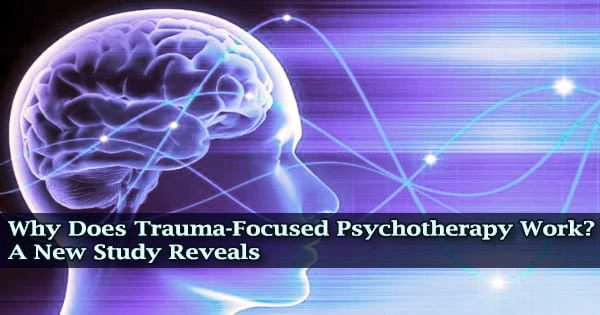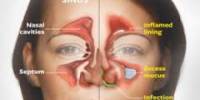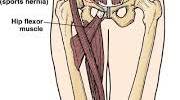Psychotherapy with a trauma emphasis is widely regarded as the most effective treatment for posttraumatic stress disorder (PTSD). However, the mechanisms by which this approach influences the brain to aid PTSD recovery remain unknown.
Psychotherapy is a generic word for talking with a psychiatrist, psychologist, or other mental health specialists about mental health issues. Psychotherapy can help with problems such as coping with daily life, the effects of trauma, medical disease, or loss, such as the death of a loved one, and specific mental disorders such as depression or anxiety.
Researchers used neuroimaging to assess how psychotherapy affects the brain areas responsible for creating emotional reactions to threats in a new study published today in Biological Psychiatry.
“We know that psychotherapy works. But we don’t have a lot of good data to explain how it works, how the brain is changed by going through this process,” said Greg Fonzo, Ph.D., lead author of the study and an assistant professor in the Department of Psychiatry and Behavioral Sciences at Dell Medical School at The University of Texas at Austin. “That’s what we sought to find out.”
Psychotherapy helps people with a mental disorder to:
- Learn how to adjust the habits, emotions, and thoughts that contribute to their sickness
- Realize and identify the life difficulties or events that contribute to their disease, such as a significant illness, a family death, a job loss, or a divorce, and assist them understand which aspects of those problems they may be able to address or improve
- Regain a sense of control and pleasure in life
- Learn healthy coping techniques and problem-solving skills
People who have encountered or witnessed a traumatic incident such as war or conflict, sexual assault, a natural disaster, or a terrorist act may develop posttraumatic stress disorder. Flashbacks, nightmares, and acute anxiety, as well as uncontrollable thoughts about the event, are all possible symptoms.
What we discovered was a reduction in traffic between these brain regions among patients who had undergone trauma-focused psychotherapy. In fact, greater connectivity changes were associated with bigger symptom reductions. This restructuring of brain communication may be a unique signature of PTSD recovery.
Greg Fonzo
Trauma-focused psychotherapy uses strategies including “in vivo exposure,” which involves immediately confronting a feared object, place, or action in real life, and “imaginal exposure,” which involves confronting the trauma memory, to help patients heal from traumatic events. A person who is scared of crowds, for example, may be exposed to huge crowds on a regular basis.
“At first, that patient will obviously experience fear or whatever negative emotion is triggered by being in a crowd,” said Fonzo, who also holds a courtesy appointment in the Department of Psychology at UT Austin.
“But it’s like looking at a fire from behind a window. It appears to be a dangerous situation, but the person is actually quite safe. After a while, the fire will burn out, and the person recognizes there was no actual danger. And so that process eventually promotes new learning in the brain.”
Psychotherapy is not for everyone who has been diagnosed with a mental disease. Psychotherapy can help people deal with a variety of life’s stressors and difficulties. It might be short-term (a few sessions) for acute challenges or long-term (months or years) for long-standing and complex problems.
Before and after therapy, Fonzo and his colleagues used functional magnetic resonance imaging (fMRI) scans to see how brain networks communicated with one another.
They examined the degree of communication or “traffic,” also known as functional connectivity, between emotion-processing portions of the brain and logic-processing regions of the cortex.
“What we discovered was a reduction in traffic between these brain regions among patients who had undergone trauma-focused psychotherapy,” said Fonzo. “In fact, greater connectivity changes were associated with bigger symptom reductions. This restructuring of brain communication may be a unique signature of PTSD recovery.”
Fonzo said these findings could change the way doctors treat people who suffer from PTSD.
“Now that we have a better understanding of the brain mechanisms underlying psychotherapy, we may be able to use this information to develop new and better treatments for people with PTSD,” said Fonzo. In some circumstances, counseling might be just as beneficial as antidepressant medicines.
Psychiatrists, psychologists, licensed social workers, licensed professional counselors, licensed marital and family therapists, psychiatric nurses, and others with specialized training in psychotherapy are among the professions who can deliver psychotherapy. Psychiatrists are also medically trained and can prescribe drugs.
















